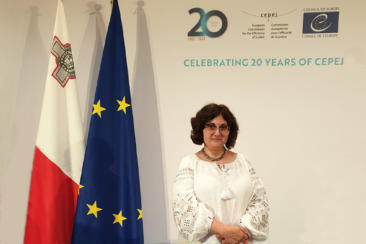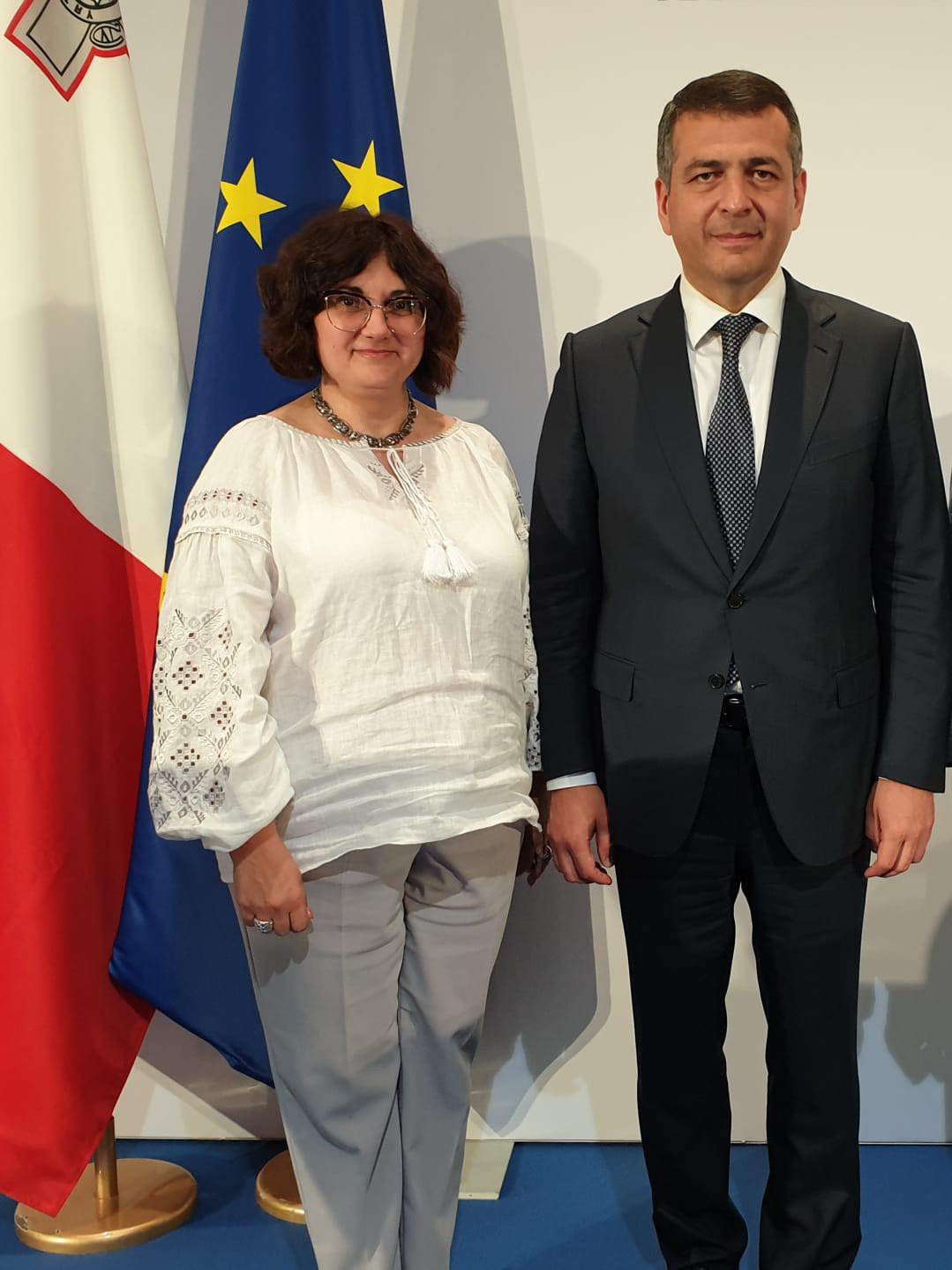Contact center of the Ukrainian Judiciary 044 207-35-46

On June 27-28, 2022, the 38th plenary meeting of the European Commission for the Efficiency of Justice (CEPEJ) was held in Valletta (Malta), dedicated to the 20th anniversary of its establishment. The meeting was attended by a delegation from Ukraine, which included Oleksandra Yanovska, Judge of the Supreme Court, a member of the CEPEJ from Ukraine.
The CEPEJ is the body that supports the member states of the Council of Europe in improving the efficiency of their judicial systems in order to ensure that they operate in accordance with CoE standards. At the 38th plenary meeting, the CEPEJ considered a number of new documents and initiatives in the field of justice.
In particular, during the event, the CEPEJ Evaluation Report was approved; it contained an overview of key trends and indicators of the judicial systems of the CoE member states, with a focus on the first year of the global health crisis. In addition, the Commission's Activity Report, which summarizes the work of CEPEJ to improve the efficiency and quality of justice in 2021, was adopted.
The participants exchanged their views on specific ways to implement the CEPEJ Action Plan 2022-2025 dedicated to “digitalization for better justice”, which was approved last December, and considered the establishment of an Artificial Intelligence Advisory Board and a Resource Center on Cyberjustice and Artificial Intelligence. The work of these initiatives will focus on enhancing the artificial intelligence tools that will be used by the judiciary. Also, the CEPEJ Working Group on Quality of Justice presented the current state of gender equality in the recruitment and career development of judges and access to justice for people with disabilities.

At the initiative of the representatives of Ukraine to the CEPEJ, the agenda of the plenary meeting was amended, and issues of cooperation with Ukraine were highlighted as a separate item. During this discussion, the following ways of cooperation were outlined: the introduction of remote justice in Ukraine, steps to resume the work of the bodies of judicial governance: the HQCJ of Ukraine and the HCJ, overcoming the shortage of human resources in the courts of Ukraine as soon as possible.
Among other things, CEPEJ experts expressed their readiness to finalize the draft law on remote justice, which was developed with the participation of SC judges, but was rejected by the people's deputies of Ukraine due to certain technical risks. European experts will help to find ideas that will overcome all reservations and risks. Indeed, due to the war in Ukraine, millions of people left their homes - they became internally displaced persons or went abroad, the premises of seven courts in Ukraine were completely destroyed, and 60 courts were badly damaged. Due to the threat of a missile attack, there are no more safe cities left in Ukraine. The introduction of remote justice is extremely important not only for the safety of judges, court staff, and litigants, but also for continuous justice.